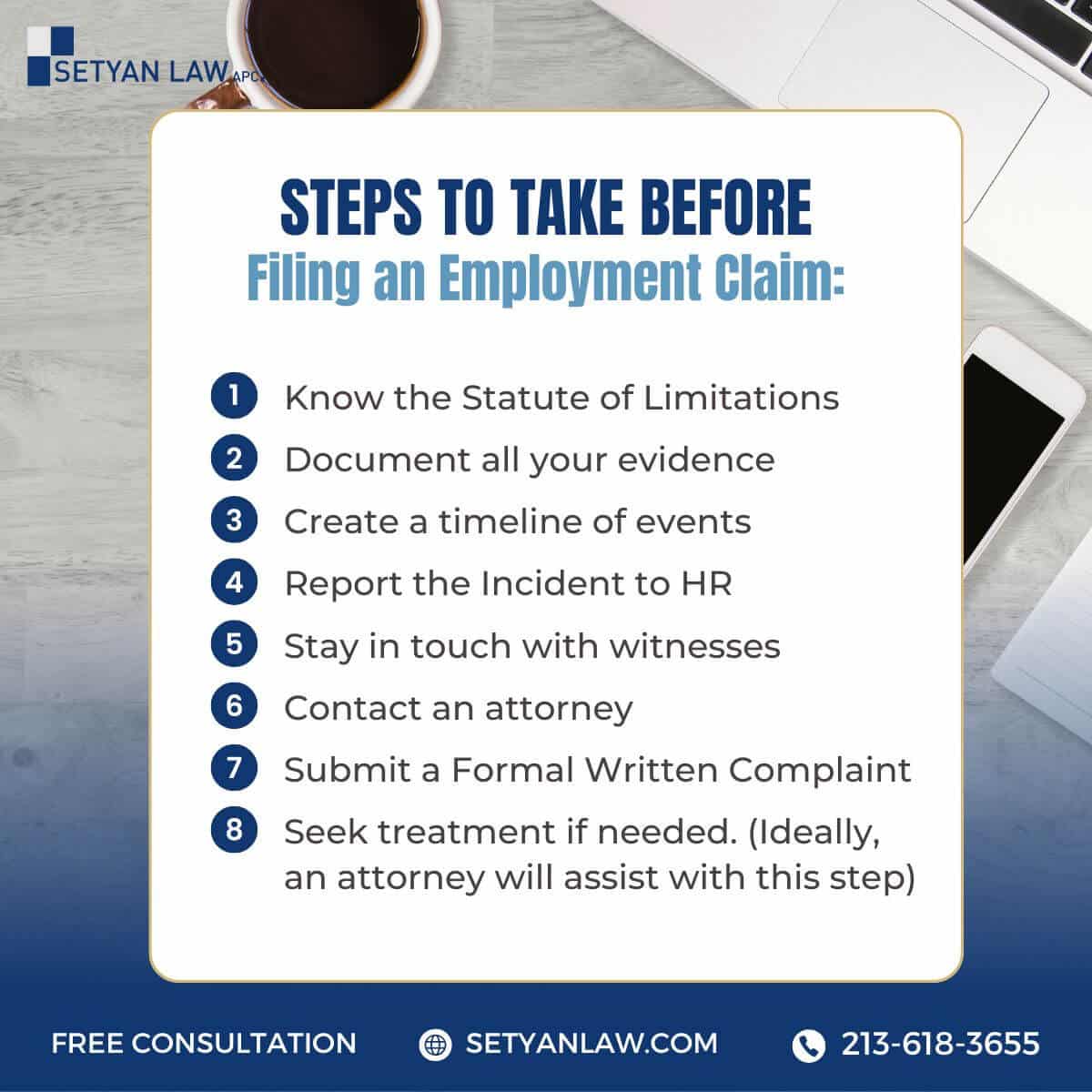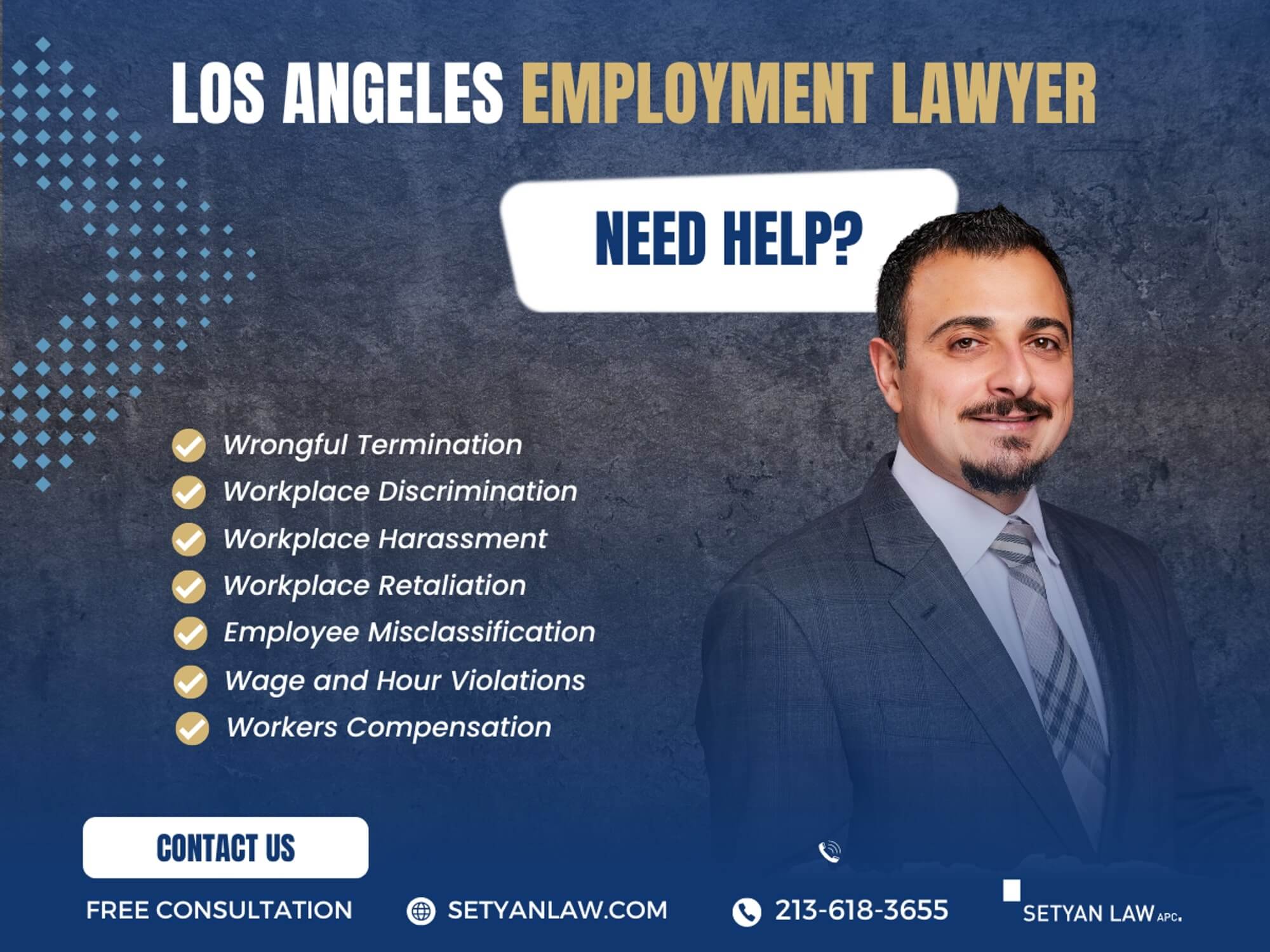Updated October 31, 2025
The Most Common Protected-Class Discrimination Complaints in California: Insights from the Civil Rights Department
California is known for having some of the strongest civil rights protections in the country. Under the Fair Employment and Housing Act (FEHA), individuals are protected from discrimination in employment, housing, and public accommodations on the basis of numerous protected classes — including race, disability, gender, age, and more. Each year, the California Civil Rights Department (CRD) (formerly known as the Department of Fair Employment and Housing, or DFEH) publishes an annual report summarizing the types and frequency of discrimination complaints filed across the state.
According to the 2023 CRD Annual Report, Californians continue to report thousands of discrimination, harassment, and retaliation complaints every year. These filings offer important insights into workplace and housing inequality trends — and reveal where civil rights protections are most often being tested.
This article explores the most common protected-class complaints in California, focusing on data from 2023, and explains what these trends mean for employees, employers, and tenants.
Understanding Protected Classes Under California Law
Under the FEHA (Gov. Code § 12900 et seq.), it is illegal for employers, landlords, and businesses that serve the public to discriminate against individuals based on certain characteristics — known as protected classes. Some of the most common protected bases include:
- Disability (physical, intellectual, developmental, or psychiatric)
- Race and color
- Sex, gender, gender identity, and gender expression
- Age (40 and older)
- Religion and religious creed
- Marital status
- National origin and ancestry
- Sexual orientation
- Medical condition and genetic information
- Military or veteran status
- Pregnancy, childbirth, and related medical conditions
- Source of income (for housing)
- Family or medical leave status
When someone believes they have been discriminated against because of one of these traits, they can file a complaint with the CRD to investigate and enforce their rights.
The Most Common California CRD Complaints Are:
Disability Discrimination: The Most Common Complaint
- Denial of reasonable accommodations
- Termination or discipline after medical leave
- Retaliation for requesting accommodations
- Failure to engage in a timely, good-faith interactive process
Retaliation and Reporting Discrimination
- Reporting discrimination or harassment
- Participating in an investigation
- Supporting another employee’s complaint
- Opposing unlawful conduct in the workplace
Sex and Gender Discrimination: Persistent Inequities
- Sexual harassment (hostile work environment): 6,297 complaints
- Sexual harassment (quid pro quo): 2,858 complaints
- Gender identity or expression discrimination: 2,373 complaints
- Pregnancy and related conditions: over 4,500 complaints combined across multiple subcategories
Race and Color Discrimination
Age Discrimination
Family and Medical Leave Violations
Religious and Pregnancy-Related Accommodations
Sexual Orientation, Marital Status, and Other Protected Bases
- 2,147 sexual orientation complaints
- 1,410 marital status complaints
- 758 military and veteran status complaints
- 699 criminal history complaints (often linked to “Ban the Box” violations)
In 2023, disability discrimination remained the leading basis for employment complaints filed with the CRD — accounting for 13,686 complaints, more than any other category (CRD, 2023 Annual Report, Table 2).
Disability-related claims often involve:
The FEHA requires employers to make reasonable accommodations for employees with disabilities unless doing so would cause “undue hardship.” Still, many employers fall short, leading to significant complaint volumes.
The CRD notes that many of these cases involve mental health conditions — such as anxiety, depression, or PTSD — which have become more visible in the workplace since the pandemic.
The second most common basis for complaints was retaliation for reporting or resisting discrimination or harassment, which accounted for 8,533 complaints in 2023. This figure reflects the growing number of workers who assert their rights — and the continuing problem of employer backlash when they do.
Under California law, it is illegal for an employer to retaliate against an employee for:
Retaliation claims frequently accompany other protected-class allegations, making them one of the most commonly asserted violations in employment discrimination cases.
Sex and gender discrimination complaints remained high in 2023, totaling 8,299 filings, along with thousands more alleging sexual harassment. According to CRD data:
Together, these figures illustrate that gender-based inequity continues to be a major challenge in California workplaces, despite decades of awareness and legal reform.
Complaints often involve unequal pay, denial of promotions, pregnancy-related leave violations, and hostile work environments. The CRD enforces both FEHA and California’s Equal Pay Act, which require employers to pay workers of different genders equally for substantially similar work.
Complaints involving race and color discrimination totaled 5,791 and 3,992, respectively, in 2023. These filings include reports of biased hiring, discriminatory discipline, microaggressions, and racially hostile environments.
California’s CROWN Act (Gov. Code § 12926) expanded the definition of race in 2020 to include “traits historically associated with race,” such as hairstyle and hair texture. As a result, employees can bring claims if they experience bias or discipline because of natural hairstyles like afros, braids, or locs.
While California was one of the first states to pass this kind of protection, continued complaints show that racial bias remains a significant barrier to fair employment.
Age-based discrimination — targeting workers aged 40 and over — accounted for 5,340 complaints in 2023. Such claims often involve older workers being passed over for promotions, laid off, or pressured to retire.
The FEHA protects older employees from unfair treatment based on age, and California law often provides stronger remedies than federal law (the Age Discrimination in Employment Act, or ADEA). Still, proving age bias can be challenging, as employers may disguise discriminatory motives under “performance” or “restructuring” justifications.
California’s Family Care and Medical Leave (CFRA) accounted for 6,885 complaints in 2023. Under the CFRA, eligible employees are entitled to take up to 12 weeks of unpaid leave to care for their own serious health condition, a family member, or a new child — without retaliation or loss of employment.
Many complaints allege that employers denied leave, failed to reinstate employees, or retaliated after workers took protected time off. Since 2021, CFRA coverage has expanded to include smaller employers (with five or more employees), increasing both awareness and potential for violations.
The CRD received over 1,548 complaints related to religious accommodations and 844 complaints regarding pregnancy-related accommodations in 2023. These claims highlight that employers often misunderstand or ignore their duty to engage in the interactive process — whether the request involves flexible scheduling for religious observance or temporary modification of duties during pregnancy.
California law requires employers to reasonably accommodate employees’ religious practices and pregnancy-related needs unless doing so would cause undue hardship. Failing to do so can result in a discrimination claim under FEHA.
In addition to major categories, the CRD received:
These numbers demonstrate the breadth of California’s anti-discrimination laws and the CRD’s broad enforcement authority across both employment and housing contexts.
Housing Discrimination Complaints
While most CRD complaints involve employment, housing discrimination remains a persistent problem. In 2023, the most common housing complaint bases were:
| Basis | Complaints |
|---|---|
| Disability (Physical or Mental) | 744 |
| Source of Income | 269 |
| Race (including Hairstyle and Texture) | 229 |
| Sex/Gender | 135 |
| National Origin | 99 |
| Color | 92 |
These complaints often involve landlords refusing to rent to tenants using housing vouchers (such as Section 8), failing to accommodate tenants with disabilities, or engaging in racial steering.
What These Trends Reveal
The CRD’s 2023 data paint a clear picture: disability, retaliation, and gender-based discrimination dominate California’s civil rights landscape. This trend underscores three key insights:
- Mental health awareness is rising, but workplace stigma persists.
- Employees are increasingly willing to report discrimination, reflecting greater awareness of their rights.
- Retaliation remains a major barrier, as many workers face adverse actions for asserting those rights.
Filing a Complaint with the CRD
Employers can reduce exposure to liability by prioritizing compliance training, engaging in interactive processes, and ensuring consistent documentation of employment decisions.
Anyone who believes they’ve been discriminated against based on a protected class can file a complaint with the CRD, typically within three years of the alleged incident. Complaints can be submitted online at calcivilrights.ca.gov, and the CRD will investigate or issue a Right-to-Sue notice, allowing the person to pursue their claim in court.
For employees, keeping documentation (emails, performance reviews, witness names) is key to supporting a claim. For employers, maintaining compliance policies and training managers on accommodation and anti-harassment obligations can prevent costly disputes.
Conclusion
California’s 2023 CRD Annual Report demonstrates that despite decades of progress, discrimination and retaliation continue to impact workers and tenants across the state. Disability, retaliation, and sex/gender remain the leading categories of complaint — revealing persistent inequities and highlighting the need for continued enforcement, education, and advocacy.
Understanding protected classes and knowing your rights is the first step toward a fairer workplace and housing environment. Whether you are an employee seeking accommodation, a tenant facing bias, or an employer striving to comply with the law, California’s Civil Rights Department remains a vital resource for enforcing equal opportunity statewide.
Sources:
- California Civil Rights Department, 2023 Annual Report (Nov 2024): calcivilrights.ca.gov
- Government Code §§ 12900 – 12996 (Fair Employment and Housing Act)
- California Family Rights Act (Gov. Code § 12945.2)
- California Equal Pay Act (Lab. Code § 1197.5)
- California CROWN Act (Gov. Code § 12926)
Why Choose Setyan Law, APC?
Consulting a wrongful termination attorney will provide you with the necessary guidance and support to navigate the legal process effectively. Remember, time is of the essence, so seek legal advice promptly to maximize your chances of a successful outcome.
California Workers: Call Setyan Law at (213)-618-3655 to schedule a free consultation.







